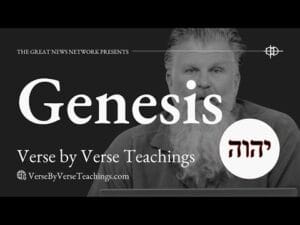
Genesis Introduction Bible Teaching
Shawn teaches the Old Testament as foundational, focusing on its divisions (Torah, Nevi'im, Ketuvim) and historical context, emphasizing spiritual power, love, and learning over ritual.

Shawn teaches the Old Testament as foundational, focusing on its divisions (Torah, Nevi'im, Ketuvim) and historical context, emphasizing spiritual power, love, and learning over ritual.

Paul promotes unity by avoiding divisive individuals; Shawn emphasizes love over doctrine for unity. Both stress spiritual growth, light over darkness, and faith in Christ.

Paul's journey to Jerusalem highlights early church dynamics, the role of deacons, and Christian giving. Emphasizes unity, prayer, and mutual support in Romans.

Shawn's teaching on Romans 15 highlights supporting the weak in faith, unity, selflessness, and the transformative power of the Holy Spirit, emphasizing hope, joy, and peace.

Teaching highlights diverse Christian interpretations, unity in love despite non-essential differences, avoiding judgment, and exercising personal faith with sensitivity to others.

Paul: Urgency of faith, casting off darkness, Christian liberty, non-judgment. Shawn: Spiritual transformation, new self, unity, freedom from legalism.

Paul's teaching in Romans 13:1-10 emphasizes submission to authorities as God's order, while Shawn highlights Christ as the ultimate authority, advocating love and grace over obligation.

Offer yourself to God as a living sacrifice, transform through mind renewal, resist worldly patterns, use spiritual gifts for communal benefit, and embody sincere love.

Shawn teaches Romans 11 on God's wisdom in uniting Jews and Gentiles through Christ, critiques "once saved always saved," and emphasizes salvation's global scope through faith.

Paul teaches in Romans 11 that God hasn't rejected Israel; a remnant chosen by grace remains. Salvation is by grace, not works. Jews and Gentiles are part of God's plan.